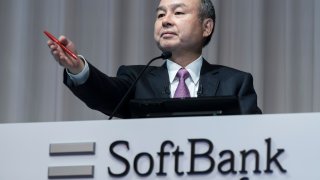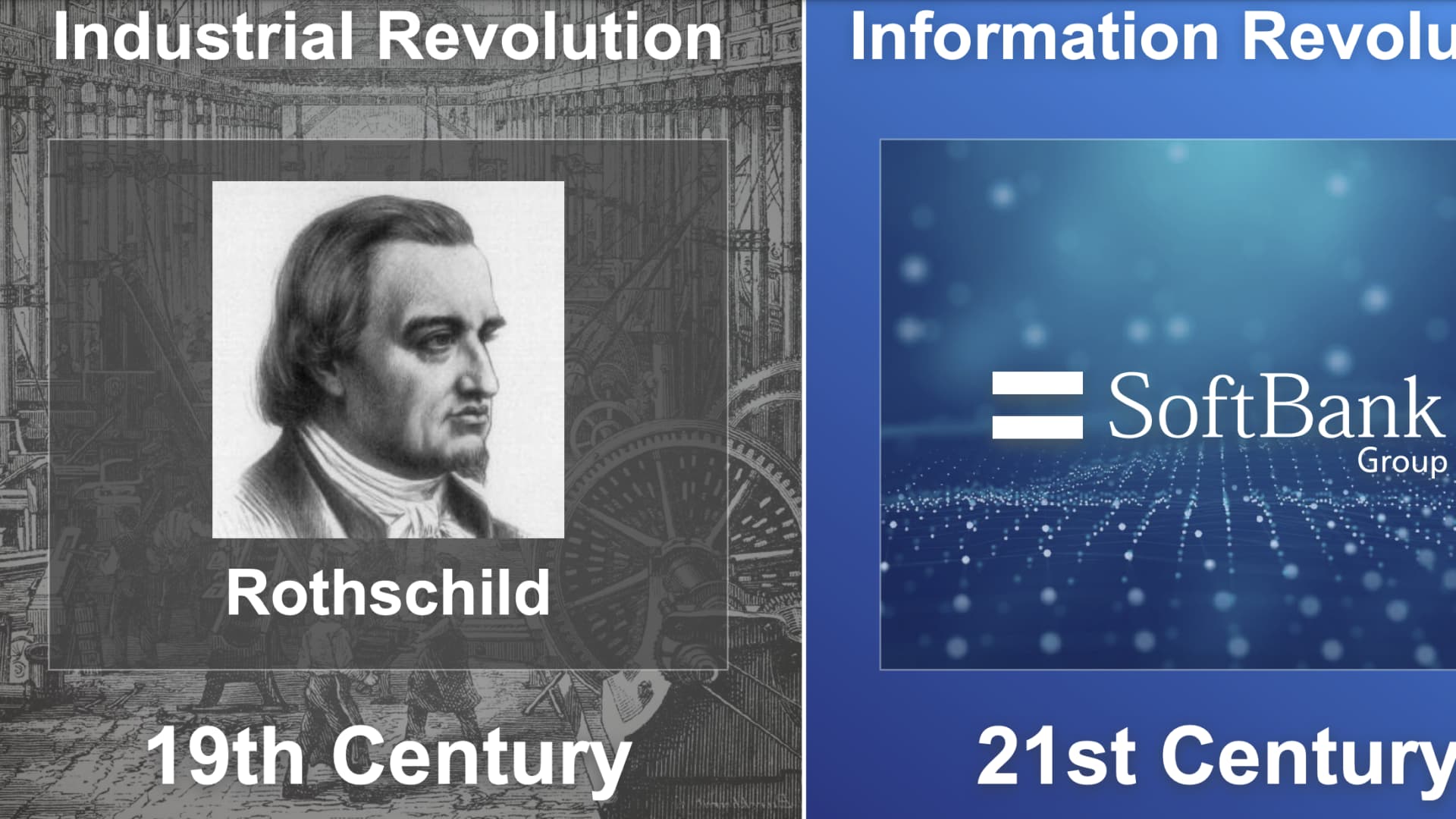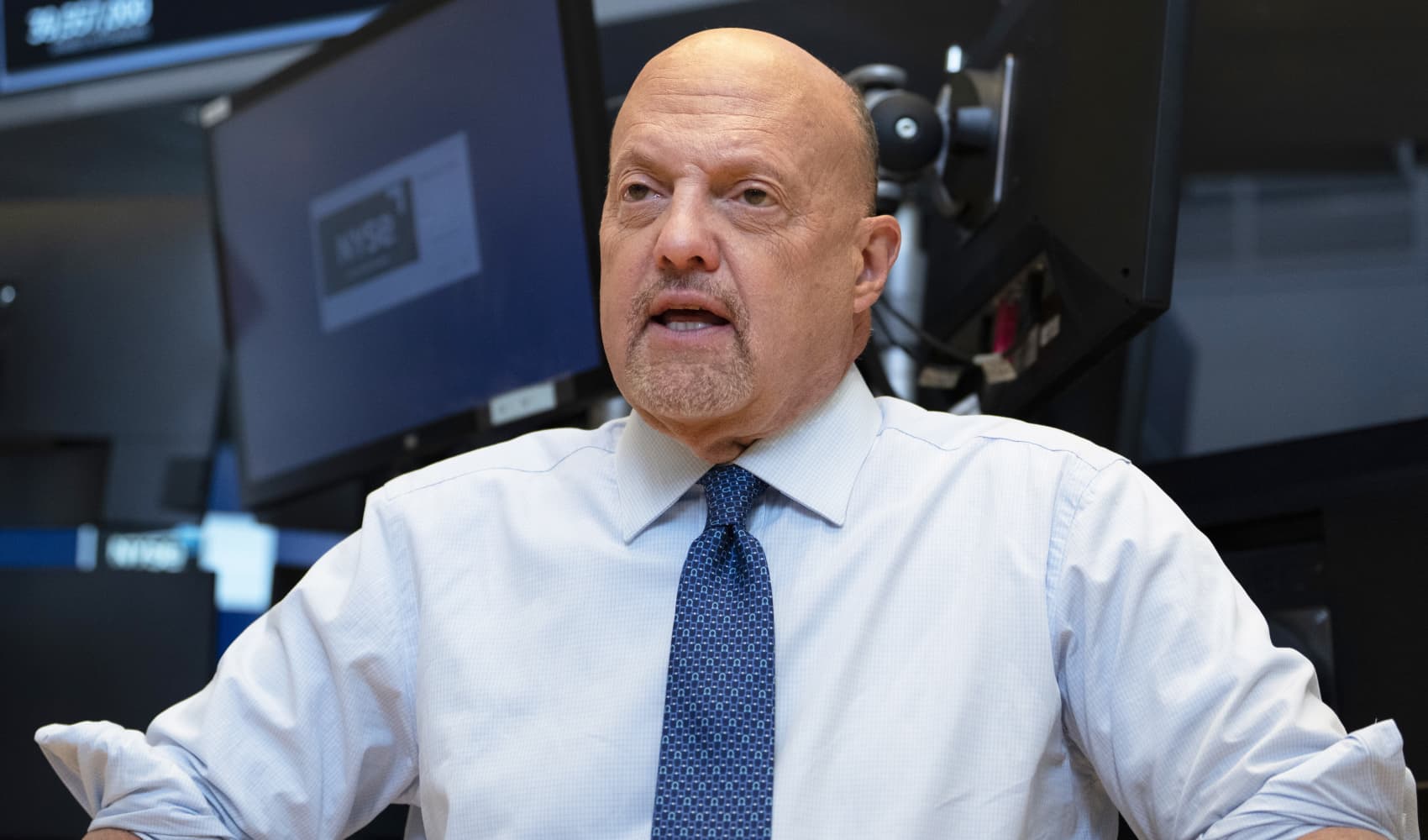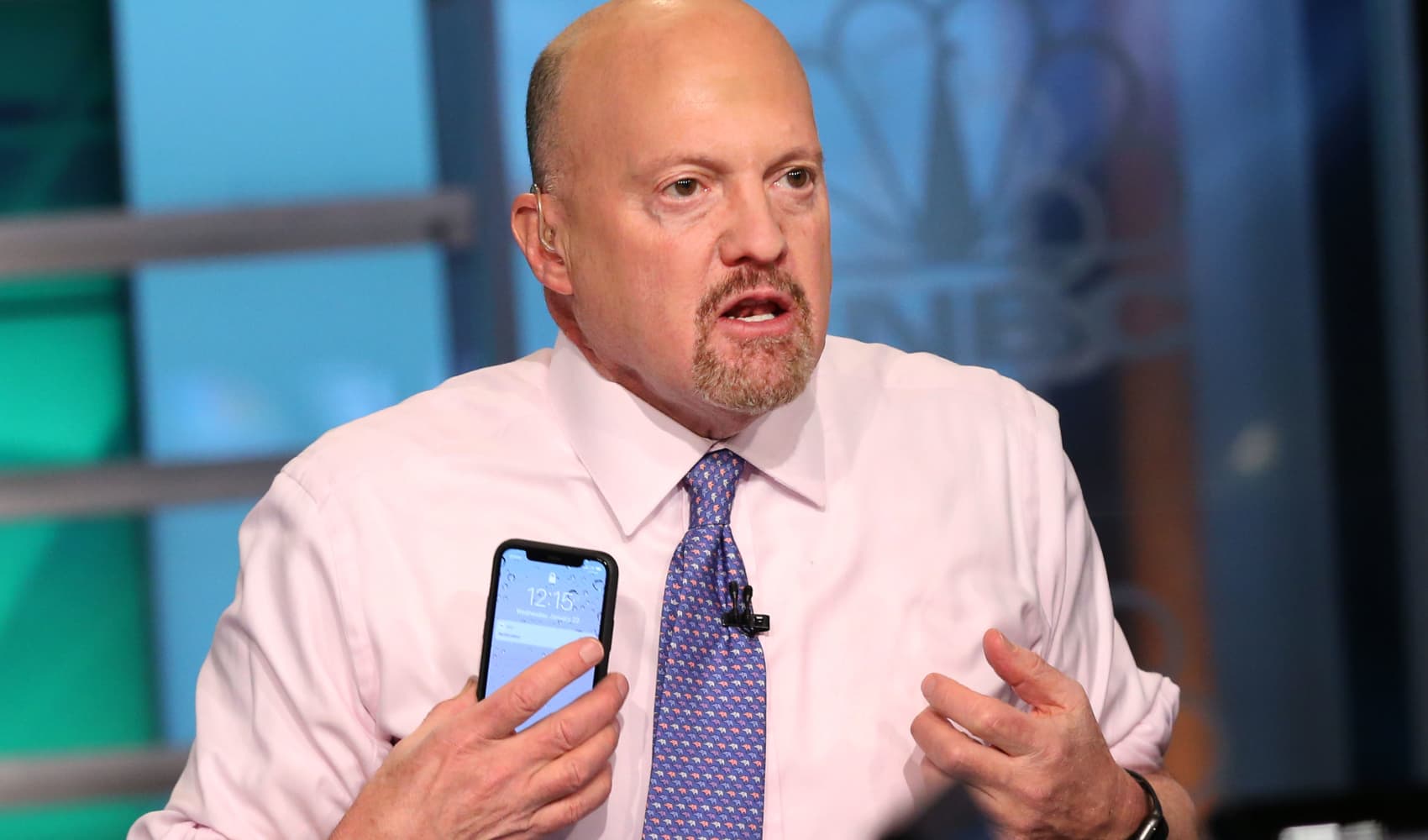
- The billionaire said many people have asked him over the last three of four years what SoftBank Group is, with some saying him they like him "very much" as an entrepreneur but not as an investor.
- Son said he would describe SoftBank as a "capital provider for the information revolution" in the 21st century in the same way that Mayer Amschel Rothschild was a capital provider for the industrial revolution in the 19th century.
- In the industrial revolution, manpower was replaced by machines, Son said. "In the information revolution, AI will be the one replacing machinery," he said.
Masayoshi Son, the chief executive of Japanese tech conglomerate SoftBank, said to shareholders on Wednesday that he wants to be viewed as a 21st century Rothschild.
The billionaire said many people have asked him over the last three of four years what SoftBank Group is, with some saying him they like him "very much" as an entrepreneur but not as an investor.
"Actually, I am not a simple or a traditional investor compared to the others," Son said. "I've been a bit frustrated. How should I best try to explain to you what is SoftBank? What is Masayoshi Son?"
We're making it easier for you to find stories that matter with our new newsletter — The 4Front. Sign up here and get news that is important for you to your inbox.
Son said he would describe SoftBank as a "capital provider for the information revolution" in the 21st century in the same way that Mayer Amschel Rothschild was a capital provider for the industrial revolution in the 19th century.

"In the industrial revolution, one of the main players was Rothschild," Son said, using one of the quirky slideshows that SoftBank has become well known for to illustrate his points. "We would like to be the capital provider for the information revolution. That is our new definition or new positioning I would say to describe SoftBank Group."
Money Report
Son said there were "many famous inventors (who) did a great job," during the industrial revolution, calling out steam engine pioneer James Watt.
"But that industrial revolution did not happen only by inventors," he said, adding that capitalists were equally as important. "Mr. Watt is quite famous, but Rothschild as the capitalist may not be fully understood, may not be fully valued," Son said.
Information revolution in full bloom
Today, the "information revolution (is) in full bloom," according to Son, who said artificial intelligence is a particular area of focus for SoftBank.
"We believe that the we are the biggest in terms of providing capital," he said on AI, adding that driving, healthcare, retail, finance and education will all be redefined by AI in the years ahead.
In the industrial revolution, manpower was replaced by machines, Son said. "In the information revolution, AI will be the one replacing machinery," he said.
SoftBank has invested in 264 companies through its two Vision Funds, as well as a dedicated Latin America fund.
"The majority of the companies are not actually making money," Son said. "We are taking risks and at the same time providing funds … as a capital provider."
Net asset value is a key metric that SoftBank focuses on when measuring its own performance, Son said. At the end of March, SoftBank's NAV was about 26 trillion Japanese yen ($235 billion), Son said, adding that it fluctuates on a daily basis and sits at around 25 trillion yen today.
There have been four main drivers for SoftBank's business over the years, Son said. Initially it was Yahoo, then it was SoftBank Mobile and eventually it became Chinese e-commerce giant Alibaba. But recently the Vision Fund is "taking a good lead in net asset value," Son said, adding that he's "spent a lot of time" on it himself.
Son claimed SoftBank has recorded a 43% internal rate of return every year in the last 25 years and pointed out that the banks provide less than 1% and asset management companies are 8 to 10%.
"Up until last year, the Vision Fund was criticized or given a hard time," Son said. "People said that Masa is not as young anymore so Masa is not as good as before and Masa becomes too greedy or you don't have a lot money or a lot of hair anymore … but finally we started to see some recovery."
That said, Son admitted there are a "lot of lessons" SoftBank has learned after big bets on loan issuer Greensill, office space provider WeWork and dog walking app Wag turned sour. "I felt embarrassed sometimes by those hard lessons," he said.






